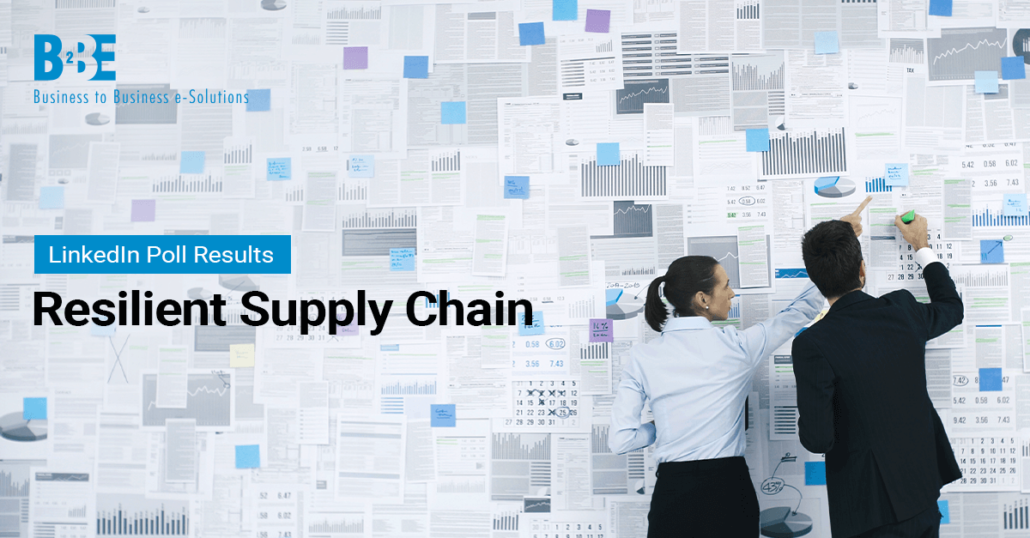A resilient supply chain is no longer just a competitive advantage—it’s a necessity in today’s unpredictable business environment. From economic shifts to natural disasters, the ability to adapt to challenges while maintaining operations can make or break a company’s success.
Poll results
In our most recent LinkedIn poll, we asked our followers why having a resilient supply chain is important for your business.
Why is having a resilient supply chain important for your business?
- Risk management
- Out-perform competitors
- Reputation management
- Improve customer relationships
Risk management
50% of the respondents chose risk management as the primary reason for building a resilient supply chain. This focus is understandable, given the growing number of disruptions businesses face today, from supplier delays to geopolitical issues.
A resilient supply chain allows companies to identify, assess, and mitigate risks more effectively. With strategies such as diversifying suppliers, maintaining safety stock, and leveraging real-time data, organisations can ensure continuity even during unforeseen events. Proactively managing risks not only minimises losses but also fosters confidence among stakeholders.
下面请观看我们的视频综述:
Out-perform competitors
25% of the respondents highlighted the competitive edge gained through supply chain resilience. A business that adapts quickly to disruptions is better positioned to seize opportunities, maintain production, and meet customer demands while competitors falter.
Resilience enables organisations to be agile, reducing lead times and ensuring on-time delivery. This reliability can make the difference between retaining loyal customers and losing market share. In a world where supply chain disruptions are increasingly common, those who plan for resilience gain a clear advantage.
Reputation management
Another 25% of respondents prioritised reputation management. When supply chains fail, delays, shortages, or quality issues can damage customer trust and tarnish a brand’s image. Conversely, businesses with resilient supply chains can avoid these pitfalls and maintain their reputation for reliability.
By investing in robust supply chain practices, organisations demonstrate a commitment to quality and customer satisfaction. This builds long-term trust, which is crucial for retaining clients and securing new opportunities.
Improve customer relationships
Interestingly, none of the respondents selected improving customer relationships as a key driver for supply chain resilience. However, it’s worth noting that a resilient supply chain directly impacts customer satisfaction. Timely deliveries, consistent product availability, and proactive communication are all hallmarks of strong customer relationships.
While this benefit may not have been the top focus for respondents, businesses should not overlook the role of resilience in fostering trust and loyalty among customers.
Learn more about B2BE’s suite of supply chain solutions, from 销售订单自动化, 应付账款, PEPPOL接入点, EDI电子数据交换 和 动态折扣.
More information
B2BE’s experience in the supply chain sector allows our customers to build, expand and adapt successfully, enabling greater effectiveness. To engage with B2BE and offer feedback on what matters most to you and your business, make sure to follow us on LinkedIn and across social media. You can also vote in our latest LinkedIn poll. If you’d like to discuss your supply chain strategy, get in touch with us.

